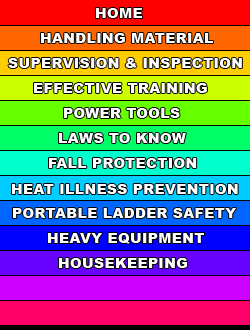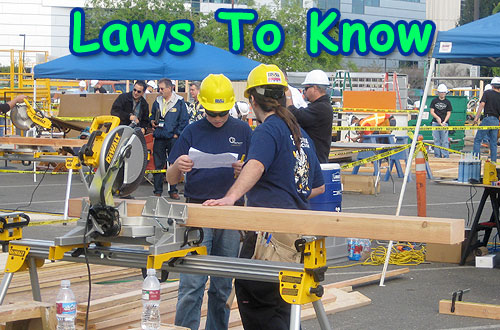
What Can Happen to You
RISKY BUSINESS

"I believe that work safety is of the utmost importance to youth because we have long work careers ahead of us that can be filled with wonderful experiences, and if we are injured or even killed on the job, those experiences could be put in jeopardy".
If you are 18 years old or older you can work in any job you choose. If you are 16 or 17 years old there are dangerous work activities the law says you can not do unless you are a student in a vocational training program or in an apprenticeship program. These dangerous activities include:
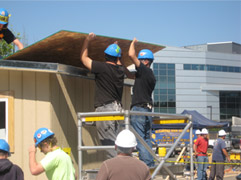 Operating circular saws, band saws, and guillotine shears
Operating circular saws, band saws, and guillotine shears- Wrecking or demolition operations
- Trenching and excavation
- Roofing and working on or about a roof
- Operating a forklift, hoist, crane or elevator
For more information see:
http://www.dir.ca.gov/dlse/ChildLaborLawPamphlet.pdf

How to Keep Yourself Safe
You are responsible for following the training and safe work practices of your teachers and employers.
Do not be afraid to ask questions. If you don't know or you're not sure, ask your teacher or foreman before starting your work.
1. Know Your Rights
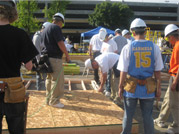 You have the rights to:
You have the rights to:
- Work in a safe and healthful workplace
- Refuse working in unsafe conditions that violate the law
- Training on recognizing hazards and doing your job safely
- Be provided free personal protective equipment that is right for the job and that fits you
2. Get Trained On
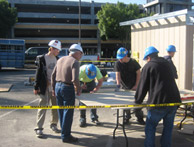 Recognizing dangers in your job and using safe work practices
Recognizing dangers in your job and using safe work practices- Cal/OSHA and the laws that are there to protect you
Remember, your teacher or supervisor is there to make sure that you work safely and with less risk
 For more information on how to keep yourself safe, read Best Practices, Training Topics for Teachers and Employers.
For more information on how to keep yourself safe, read Best Practices, Training Topics for Teachers and Employers.
February 2010


